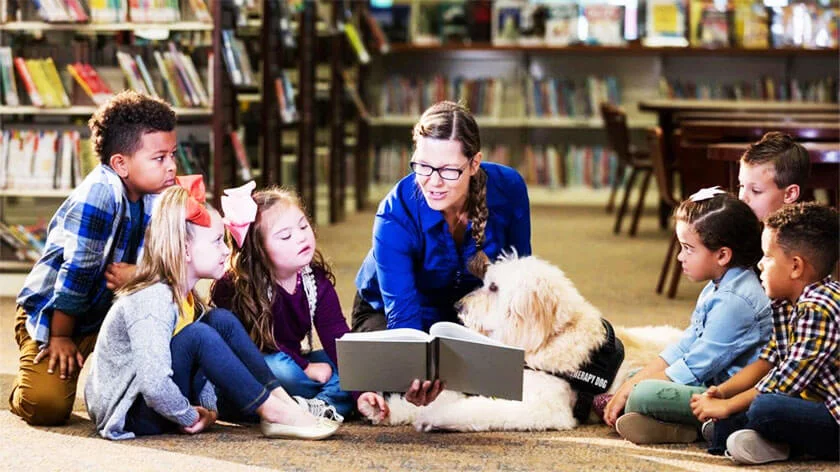Pick up any children's
book and look, most likely the main character in the story will be an animal,
not a human.
From small reptiles like caterpillars
to large marine animals like whales, animals seem to be of special interest to
children around the world.
Most of the animals seen
in pictorial stories are far from the real world of children. But in homes
where there are pets, children have the opportunity to see animal world up
close. Often, these children and pets develop a relationship that lasts a
lifetime.
If parents are aware of relationship
between children and pets and its effects on children in their life, not only they
will choose the right animal, but it also helps them to understand a true and
successful relationship.
For most people, their
pets are like family members who help them at different stages of life.
These friends, running
around the house, can help the couple strengthen their relationship. They can
play with children and when the children grow up and move away from home, these
animals become old friends of the parents.
A study in the United
States found that 63% of households with children under 12 months of age had
pets. A study in Australia found that when children start going to school, there
is a 10% increase in pets at home.
Most parents find that
caring for animals teaches them valuable lessons about helping others, a sense
of responsibility and empathy. "It's very important, especially for young
children to learn that someone else's point of view may be different from
yours," says Megan Muller, a professor at Tufts University in the United
States. Maybe it's easier for children to learn this lesson from animals than
from their siblings.
But many people think that
the effects of pets on children are even greater.
They claim that animals
can affect children's habits, physical health and even their mental development
and develop a great deal of empathy.
For example, children with
autism, pets can reduce the stress of these children and their families and can
help build strong relationships for these children.
Research on the
relationship between pets and children has also shown that in addition to long-term
effects on children's psychology, being close to children at a particular
moment can also be beneficial for them.
In one study, when some
children were asked to put different items in
separate boxes, they made fewer mistakes when there was a dog in the room. That
is, the presence of a dog in the room improved the children's understanding.
Another study found that
when we adults consider pets to be part of our family, our mental health also
improves.
Although there have been
criticisms that pets have greatly improved a person's life, many have benefited
from it, but many believe that their health has improved since pets were
raised. They were happy, although there was no difference in their medical
tests.














0 Comments